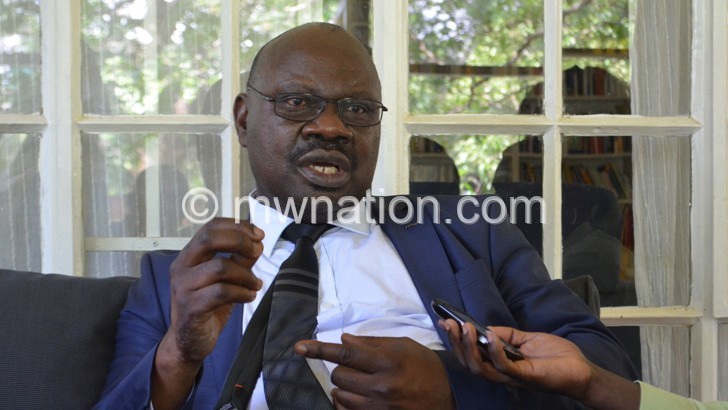Treasury helpless on sanctions
The Public Finance Management Act (PFMA) of 2003 does not empower the Secretary to the Treasury (ST) to discipline controlling officers who overspend or over-commit public funds outside of the approved budget, The Nation has learnt.
In Section 87(2), the PFMA provides that where a controlling officer spends or commits to spend in excess of approved limits, the appointing authority “may suspend without pay the controlling officer or chief executive with effect on or from the date that the ST certifies the unauthorised expenditure or commitment”.

On the other hand, while Section 10(1) (f) of the PFMA places the responsibility of ensuring there is no over-expenditure or over-commitment of funds with the controlling officer, Treasury has observed that this continues to happen.
The observations follow Treasury’s recent issue of a new system to control spending of public funds by Ministries, Departments and Agencies (MDAs) where it has since warned that controlling officers who do not adhere to the measures will face sanctions.
In a circular dated August 20 2018 from the ST Ben Botolo to heads of MDAs, Treasury said it has noted with “concern” the increasing number of controlling officers and heads of government institutions who were committing government to spend in disregard of approved budget within a financial year.
Reads the circular in part: “I wish to reiterate that committing government to spend is a crime and controlling officers are called upon to respect the budget as approved by the Parliament.”
Botolo has since warned the controlling officers that he would apply sanctions as stipulated in Section 87(2) of the PFM Act if they do not respect the approved budget by over-committing the government financially.
But Ministry of Finance, Economic Planning and Development spokesperson Davis Sado said much as the ST did not have such powers, together with the Accountant General, they have imposed sanctions on officers who have contravened PFMA.
These sanctions have included withholding of funding if controlling officers do not submit monthly reports, withholding processing of payment vouchers by the Accountant General until there is compliance.
Sado said such deficiencies have been noted in the PFMA as a result the legislation was undergoing review.
“There are some issues which require certain powers outside of the ST to act. This is why the government is in the process of reviewing the PFMA as one way of addressing these challenges,” he said.
He said the law would also have to state to what extent controlling cfficers can be held responsible for their actions on the budgets.
Zomba Changalume member of Parliament John Chikalimba (People’s Party-PP), who is also vice-chairperson of the Budget and Finance Committee of Parliament, said in an interview there should be political will to punish officers who spend outside the approved budget.
“It is such loopholes that lead to Cashgate and lack of discipline by controlling officers,” he said.
Treasury has since introduced Financial Compliance Units to scrutinise documentation such as contracts to ensure payments made are valid.
This was after the Auditor General’s report for the year ending June 30 2017 found that MDAs such as Roads Fund Adminstration, State Residences and Office of the President and Cabinet among others collectively overspent their allocations by K23 billion.
The Auditor General also noted that payments without supporting documents increased from K517 million in 2015 to K5.3 billion in 2017.
In its recommendations, the National Audit Office (NAO) called for an immediate need to strengthen audit committees in all MDAs to facilitate speedy responses to audit reports and queries.
The shortcomings, especially relating to payments without supporting vouchers and missing payment vouchers, invoked memories of Cashgate—the plunder of public resources at Capital Hill—exposed in September 2013 through the shooting of then Ministry of Finance budget director Paul Mphwiyo outside the gate of his house.





